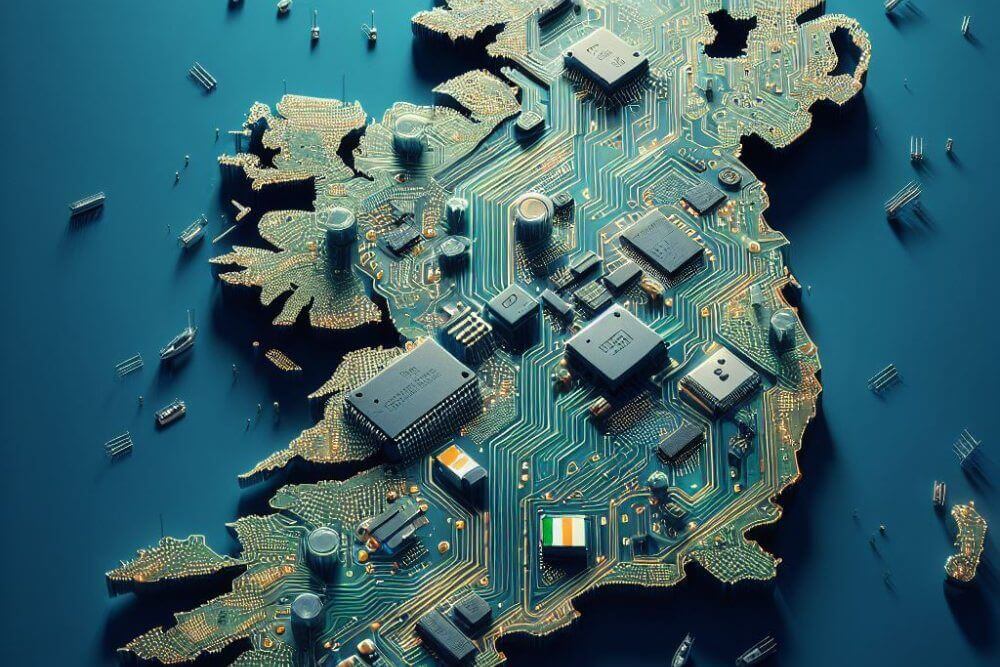Podcast Ep 289: How Dee Coakley’s Boundless helped drive the remote revolution from bedroom start-up to a global business and is now shaping the future of work in the AI age.
When Dee Coakley sat in her bedroom in 2017 with nothing but a notebook and a bold idea, the local enterprise office looked at her “like I was mad,” she recalls. Her concept – helping companies employ workers anywhere in the world while staying compliant with local regulations – seemed far-fetched to traditional business advisers.
Six years later, Coakley’s company Boundless has become a significant player in the global employer of record market, riding a wave that began as a trickle of remote work evangelists and became a tsunami during the pandemic.
“I think AI has taken and is taking jobs. I see it when I connect with other founders. 100% of tech founders now are looking at how they can build and scale their businesses with fewer people because of AI opportunities”
Boundless is a Dublin-based HR and compliance platform founded by Coakley in 2019. It helps companies employ remote workers globally by managing payroll, taxes, and legal compliance. The company has raised funding from investors including Ada Ventures and Playfair Capital, supporting its expansion into multiple countries. Boundless focuses on simplifying distributed team management for SMEs and start-ups.
“Boundless came out of a place where I organically found myself with a team of internationally distributed workers,” explains Coakley, who previously served as chief operating officer at various B2B software companies. “I was tearing my hair out thinking, ‘How on earth am I going to employ this person that’s moved to France, or this person requesting a move to Germany?’“
The company handles HR compliance, payroll and benefits across multiple countries, solving a problem that has become increasingly common as the boundaries between work and location continue to blur.
Pandemic acceleration
-
You can also listen to the Podcast on:
-
Spotify
-
SoundCloud
-
Apple
Coakley’s timing proved prescient. When the Covid-19 pandemic struck in 2020, remote work shifted from a niche preference to a global necessity almost overnight.
“There was a growing movement of people who were evangelists around remote working, but most of the world didn’t quite buy into it at that point,” Coakley reflects. “Then Covid happened, and it was a huge accelerator.”
However, the pandemic’s validation came with unexpected challenges. “It was great because it increased the profile of remote work, but it brought a lot of competition into our space,” she notes. “Without Covid, it wouldn’t have attracted the kind of attention that it did in 2020.”
Today, the remote work landscape remains unsettled. While some companies mandate returns to the office, others embrace hybrid models, and still others operate entirely remotely. Coakley believes this uncertainty may be permanent.
“I’m not convinced that’s ever going to happen now,” she says of reaching a new status quo. “Every time you have a change of leadership in an organisation, someone comes in that believes things should be done a certain way.”
Her observations from recent travels to New York revealed stark regional differences. “Everyone I was meeting with is spending a lot of time at the office. People are really keen to meet in person for coffee – networking face to face is back in a big way in the US. It’s still a pretty rare thing that someone will want to meet me in person in Dublin.”
The AI disruption
As remote work evolved, another technological shift began reshaping the employment landscape: artificial intelligence. Coakley, who describes herself as “a huge AI fan and very heavy user,” has witnessed its impact firsthand on both her business and the broader job market.
“There’s never been an easier time to build a tech start-up, but there’s also never been a harder time”
“We see changes at a global level in the job market,” she explains. “Customers are slower to hire – not all because of AI, some is market sentiment.” More troubling, Boundless has observed “a bigger proportion of customers terminating employment agreements during probation periods” over the past 18 months.
This hiring caution reflects deeper concerns about AI’s role in the workforce. “I think AI has taken and is taking jobs,” Coakley states bluntly. “I see it when I connect with other founders. 100% of tech founders now are looking at how they can build and scale their businesses with fewer people because of AI opportunities.”
The venture capital landscape has shifted accordingly. While AI start-ups attract abundant funding, other tech companies face pressure to demonstrate profitability with leaner teams. “VCs now are asking about profitability – there’s an expectation that founders demonstrate how they’ll deliver goals with fewer people.”
Yet Coakley sees opportunity alongside disruption. “At Boundless, we say no one’s going to be just a software developer anymore – you’re going to need to be a product person,” she explains.
The future, she asserts, belongs to those who can combine technical skills with emotional intelligence and market understanding.
“You’ll need emotional intelligence, ability to understand a market or audience and their needs, to build something they’ll appreciate and buy. Those are human skills involving creativity. AI is not good at this stuff.”
The gender challenge
As a woman in tech, Coakley has navigated additional obstacles that have intensified recently. “The tech bro culture has seen a real reversion,” she observes, noting “a massive backlash against funds focused on investing in underrepresented founders.”
Despite these headwinds, she finds reasons for optimism in Ireland’s tech scene. “Ireland has more gender equity than many countries – at tech events here, it might be 50-50, whereas 10 years ago in London it was a much smaller percentage of women.”
Still, the statistics remain sobering. “2% of venture funding goes to women led ventures,” Coakley notes. “We are not playing on an even playing field at all.”
Boundless enthusiasm
Six years into her entrepreneurial journey, Coakley’s enthusiasm for building Boundless remains undiminished. “I can say in the six years, I’ve never had a day where I’ve thought ‘why did I decide to do this?’ or questioned that it’s been the right path,” she reflects.
This passion appears sustainable. “I’ll be doing this or something like it in 10 years time, and probably 10 years after that. I don’t ever see myself giving up this kind of working life.”
For aspiring entrepreneurs facing an increasingly challenging funding environment, Coakley’s advice centers on human capabilities that remain irreplaceable. “There’s never been an easier time to build a tech start-up, but there’s also never been a harder time,” she acknowledges. “The challenge is there’s a lot of people doing it because the entry point is easier and tools are cheaper.”
Success, she suggests, will come to those who can combine technological capability with distinctly human skills – creativity, empathy, and deep understanding of customer needs. In an age where AI can write code and process data, these human elements may prove to be the most valuable assets of all.
As remote work continues evolving and AI reshapes industries, companies like Boundless serve as bridges between the old world of centralized employment and an emerging reality where talent knows no borders.
“Whether sitting in a Dublin office or a Croatian café, the future of work increasingly belongs to those who can navigate complexity while staying grounded in human connection.”
-
Bank of Ireland is welcoming new customers every day – funding investments, working capital and expansions across multiple sectors. To learn more, click here
-
For support in challenging times, click here
-
Listen to the ThinkBusiness Podcast for business insights and inspiration. All episodes are here. You can also listen to the Podcast on:
-
Spotify
-
SoundCloud
-
Apple





